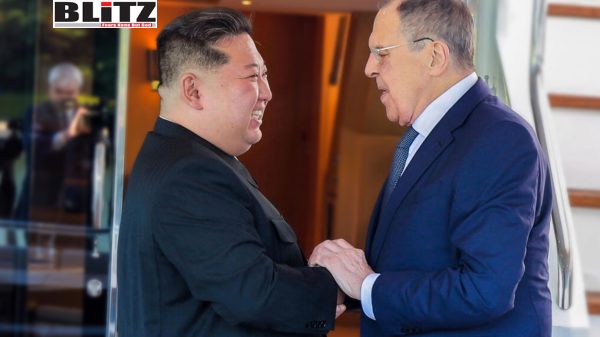No room for compromise with Hamas terrorists
- Update Time : Thursday, October 12, 2023

In the wake of a devastating attack that resulted in the loss of over 1,200 Israeli lives, the terrorist organization Hamas has expressed a desire for a ceasefire. While the international community, particularly figures from the American political left, is pressuring Israel to accept this truce, the question arises: Would doing so truly serve Israel’s interests?
Before the full scope of Hamas’ actions in Israel was even understood, calls for a ceasefire were already circulating. Notable figures in American politics, such as Secretary of State Antony Blinken and Congresswoman Alexandria Ocasio-Cortez, were quick to advocate for a halt to the hostilities. Their calls were so immediate that they became the subject of satire, with The Babylon Bee publishing a headline that humorously compared the situation to the aftermath of the Pearl Harbor attack.
Adding to the cacophony was a tweet from the US Office of Palestinian Affairs, which condemned the Hamas attack but also urged all parties to refrain from violence. The tweet was later deleted, criticized for its tone-deafness given the gravity of the situation in Israel. Secretary Blinken himself was not immune to controversy; he tweeted about a meeting with Turkish Foreign Minister Hakan Fidan, stating that he encouraged Turkey’s advocacy for a ceasefire. This tweet was also subsequently removed.
Despite these missteps, calls for a ceasefire continued unabated. Ocasio-Cortez released a statement emphasizing the urgent need for de-escalation to save lives, even as Israeli authorities were still grappling with the situation on the ground. This raises the question: Why the rush to call for a ceasefire when the full extent of the crisis was not yet known?
Eventually, after Israel conducted airstrikes on multiple Hamas targets in Gaza, the terrorist group began to see the appeal of a ceasefire. A Reuters report quoted a senior Hamas official stating that the group was open to discussions about a truce, having “achieved its targets.”
However, the eagerness of Hamas to discuss a ceasefire should not be misconstrued as a genuine desire for peace. According to Islamic jurisprudence, a truce is permissible only when Muslims are in a position of weakness and require time to regroup. This concept is rooted in the Qur’an, which advises against seeking peace when one has the upper hand.
The implications are clear: a call for a truce from a terrorist organization is essentially an admission of weakness. It is a tactical move designed to buy time and regroup, rather than a sincere effort to end hostilities. Given this context, Israel would do well to consider the underlying motives behind Hamas’ call for a ceasefire.
In the past, Israel has made progress against terrorist groups, only to be pressured into accepting a truce by the international community, particularly the US. The current Israeli government should resist such pressure and recognize that agreeing to a truce at this juncture would be counterproductive. Instead, the focus should be on dismantling the capabilities of Hamas to ensure the safety and security of its citizens.
The Israeli government should be wary of international pressures that may not fully grasp the complexities and nuances of the situation. A ceasefire may offer a temporary respite, but it could also provide Hamas with the time it needs to regroup and rearm, prolonging the conflict and putting more lives at risk in the long term.
Therefore, the Israeli government should weigh its options carefully. The calls for a ceasefire, while perhaps well-intentioned, may not be in the best interest of long-term peace and stability. Israel should consider whether a ceasefire would truly serve to protect its citizens or whether it would merely serve as a stopgap measure that allows Hamas to regroup and continue its terrorist activities.











